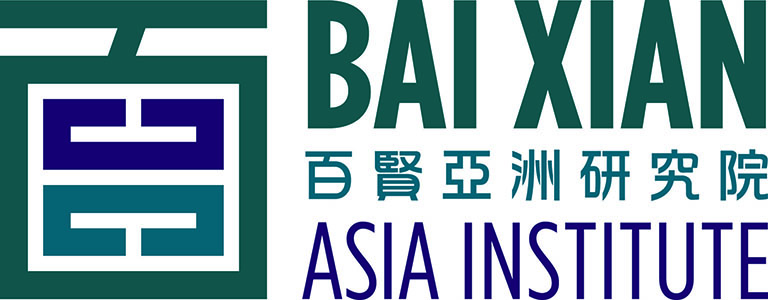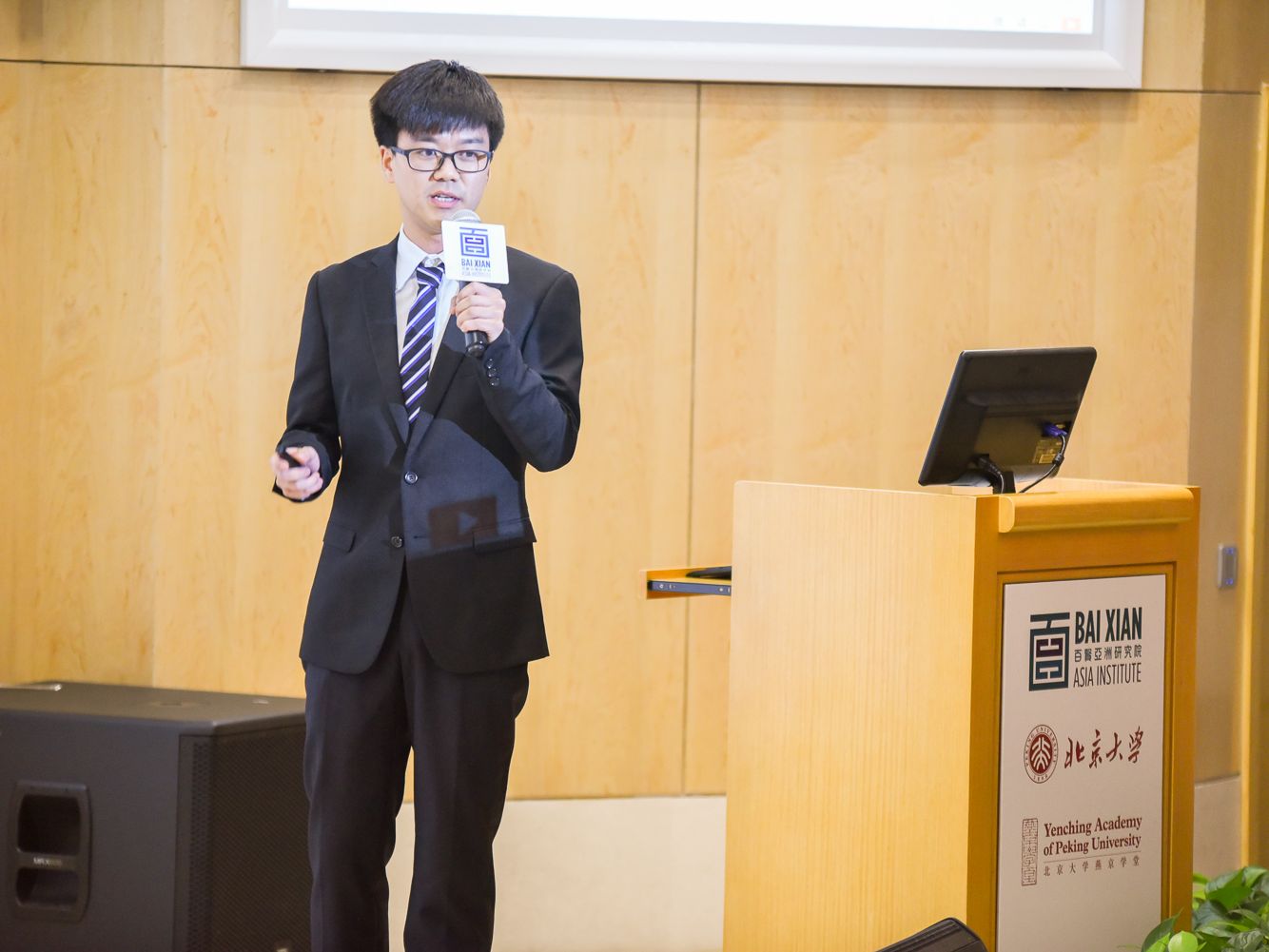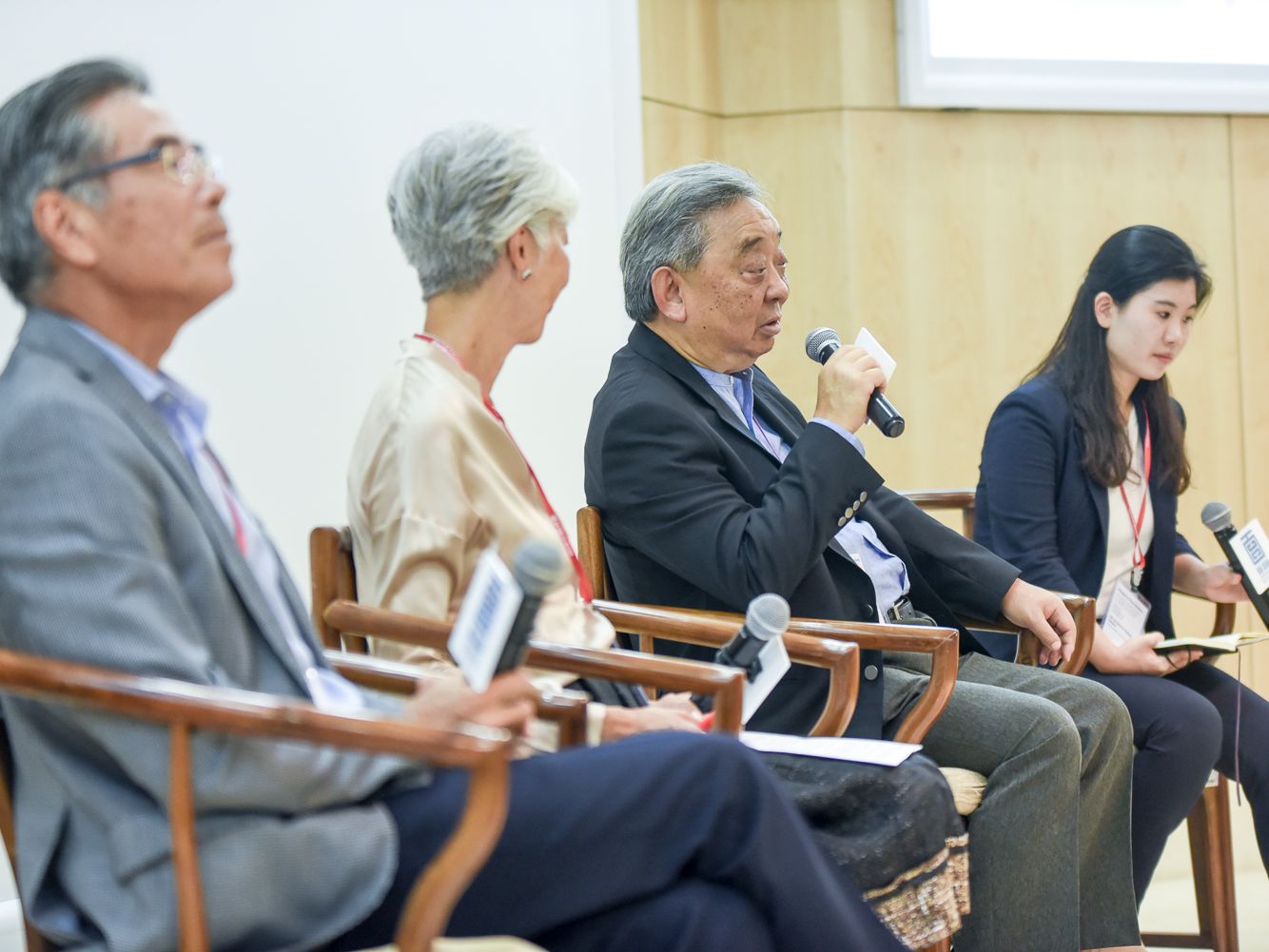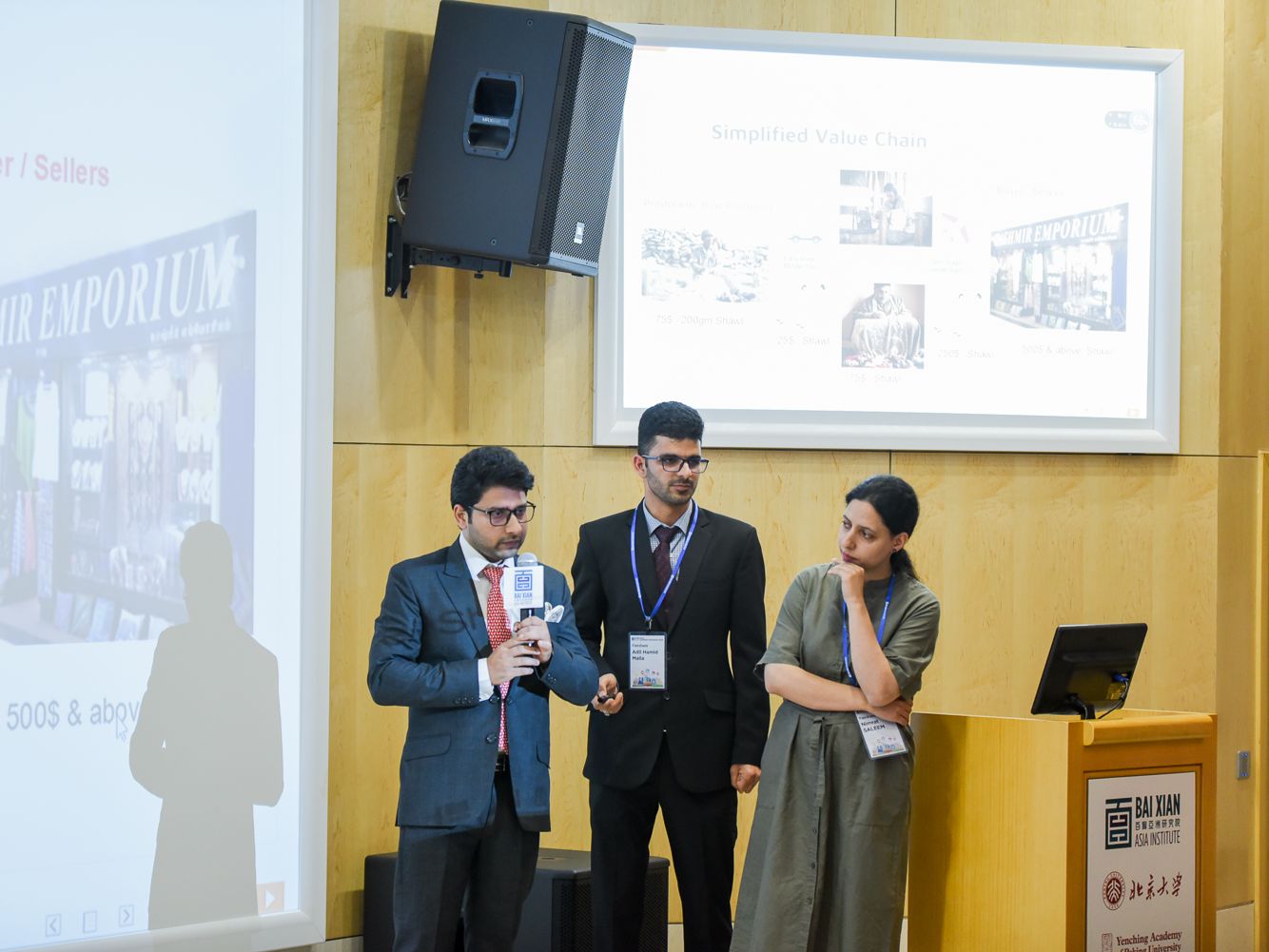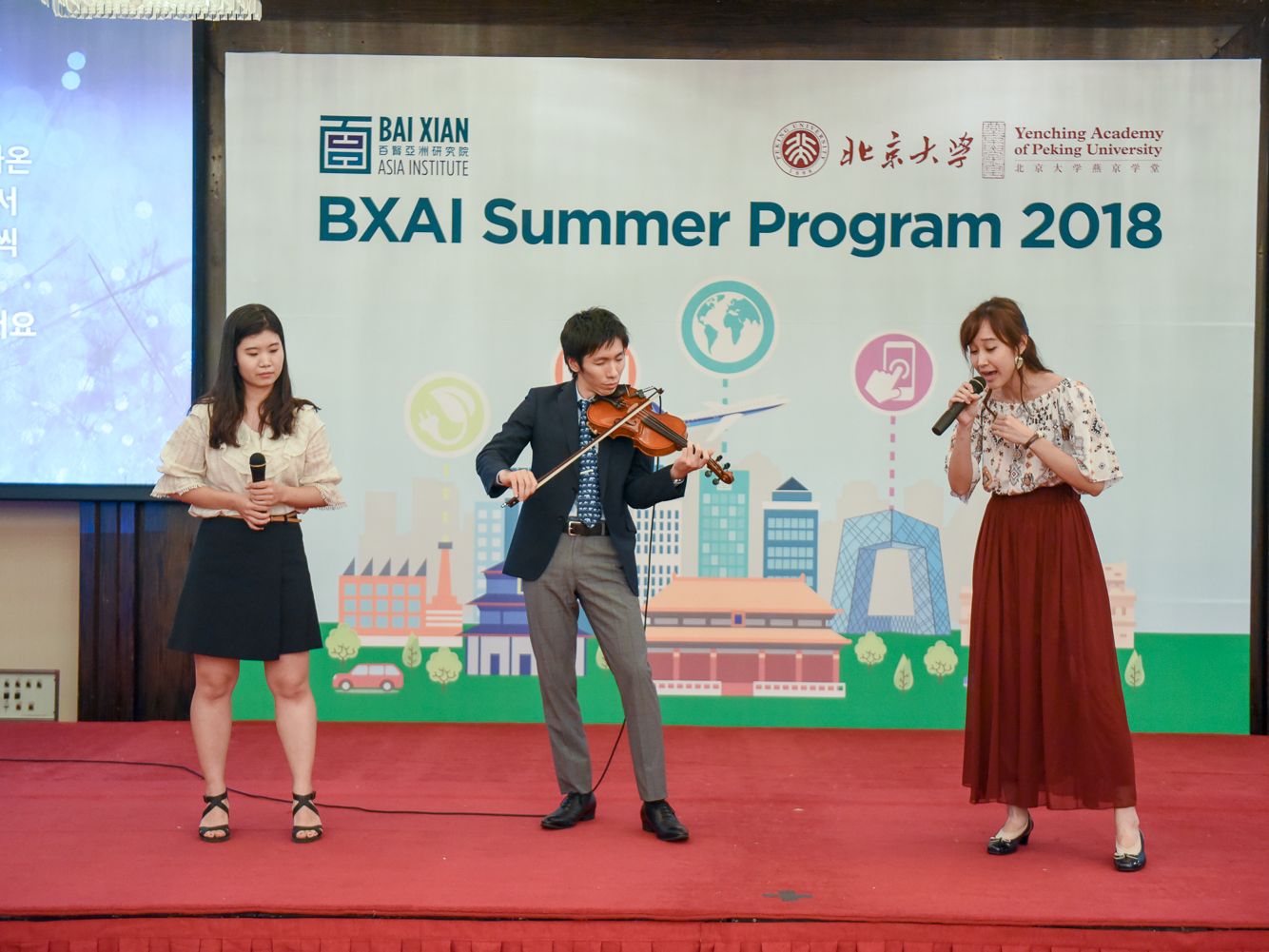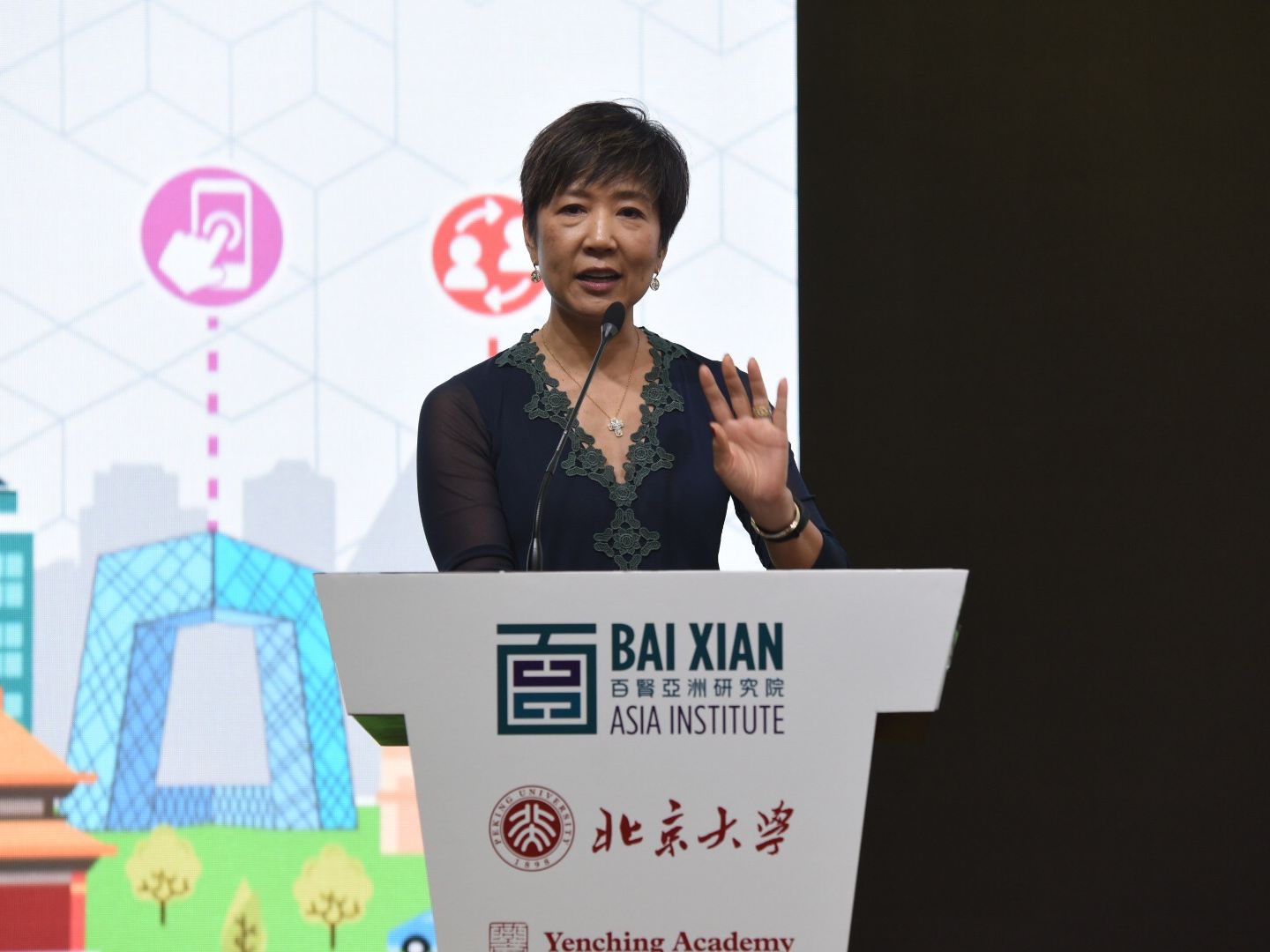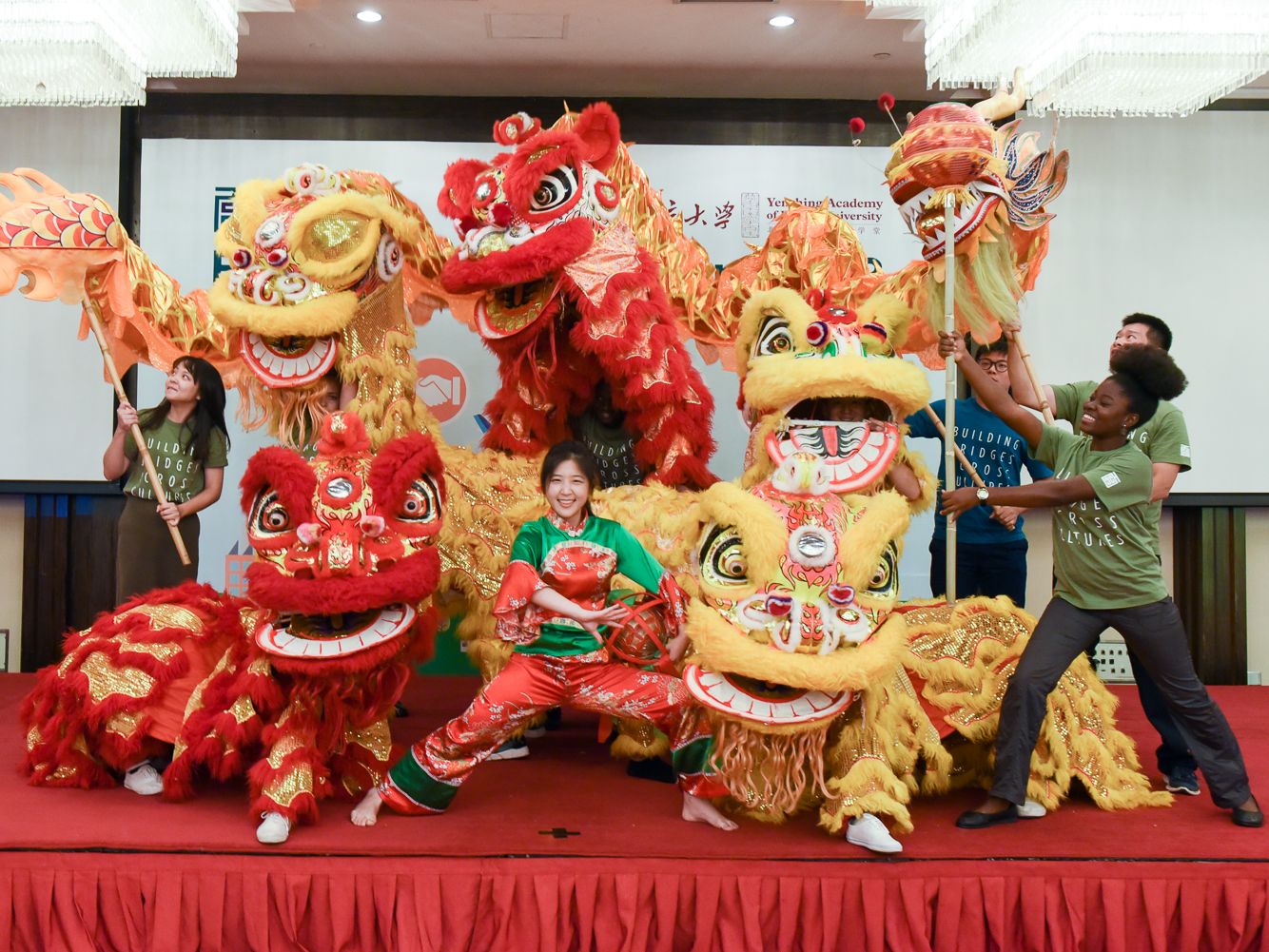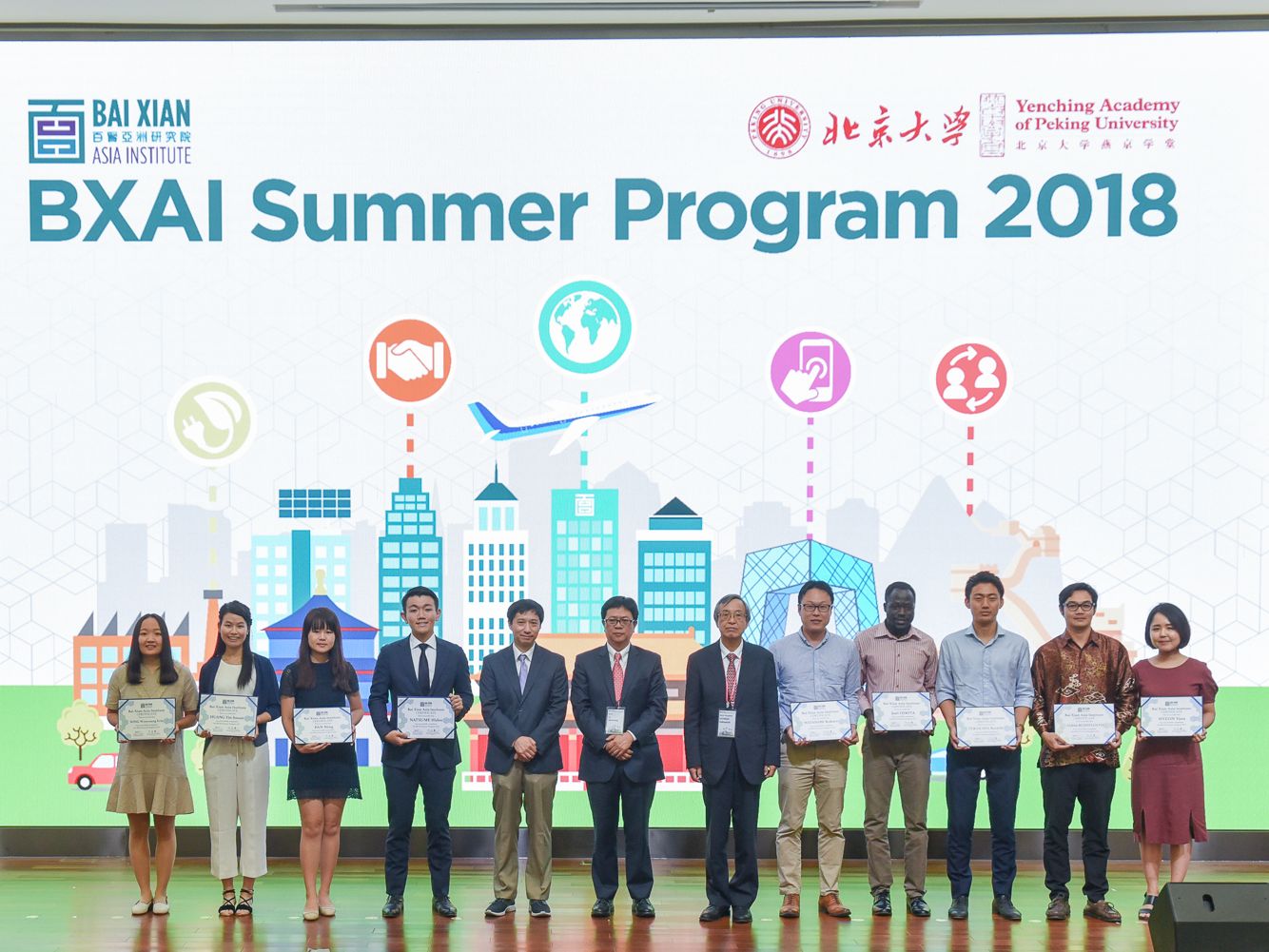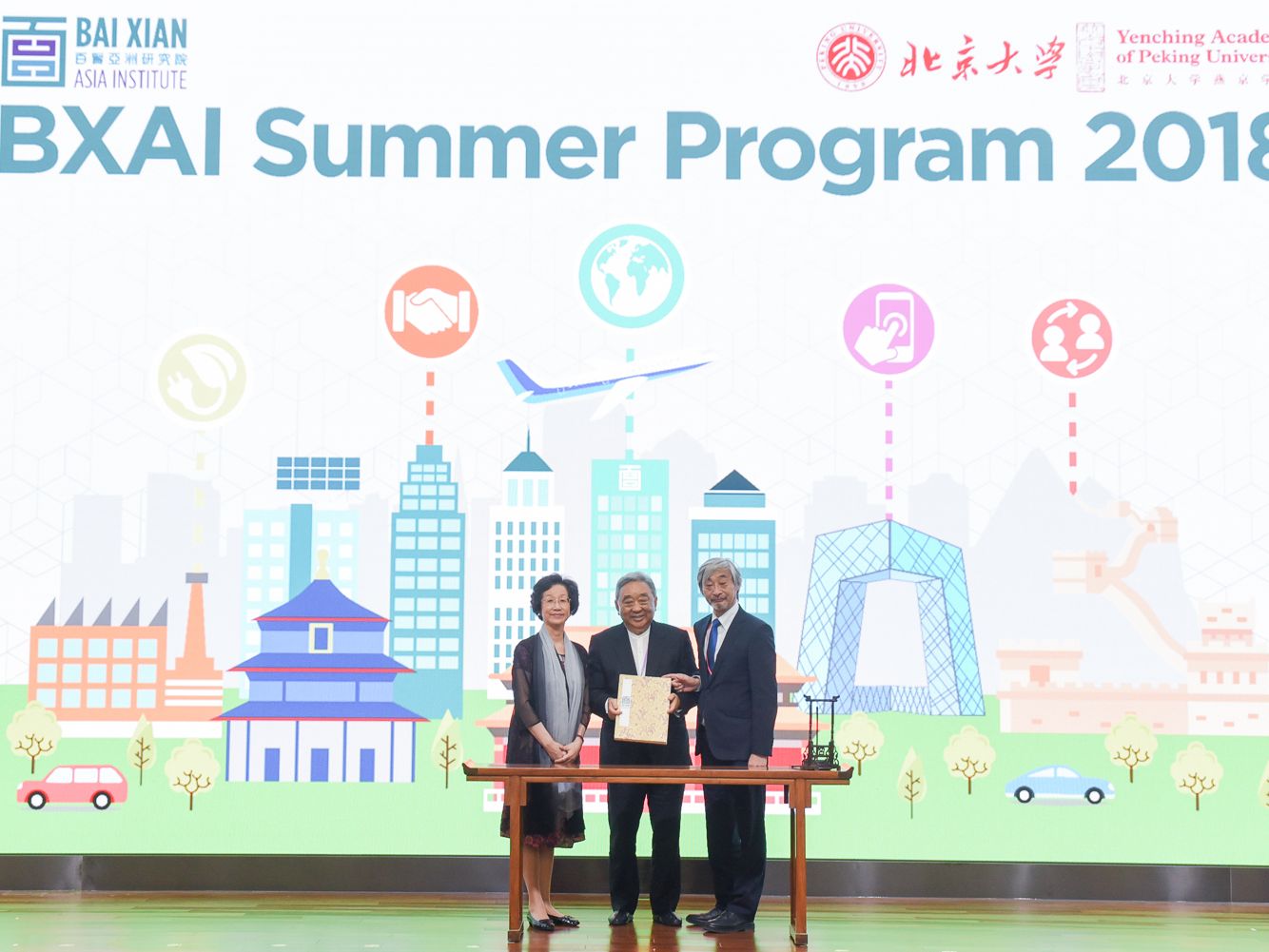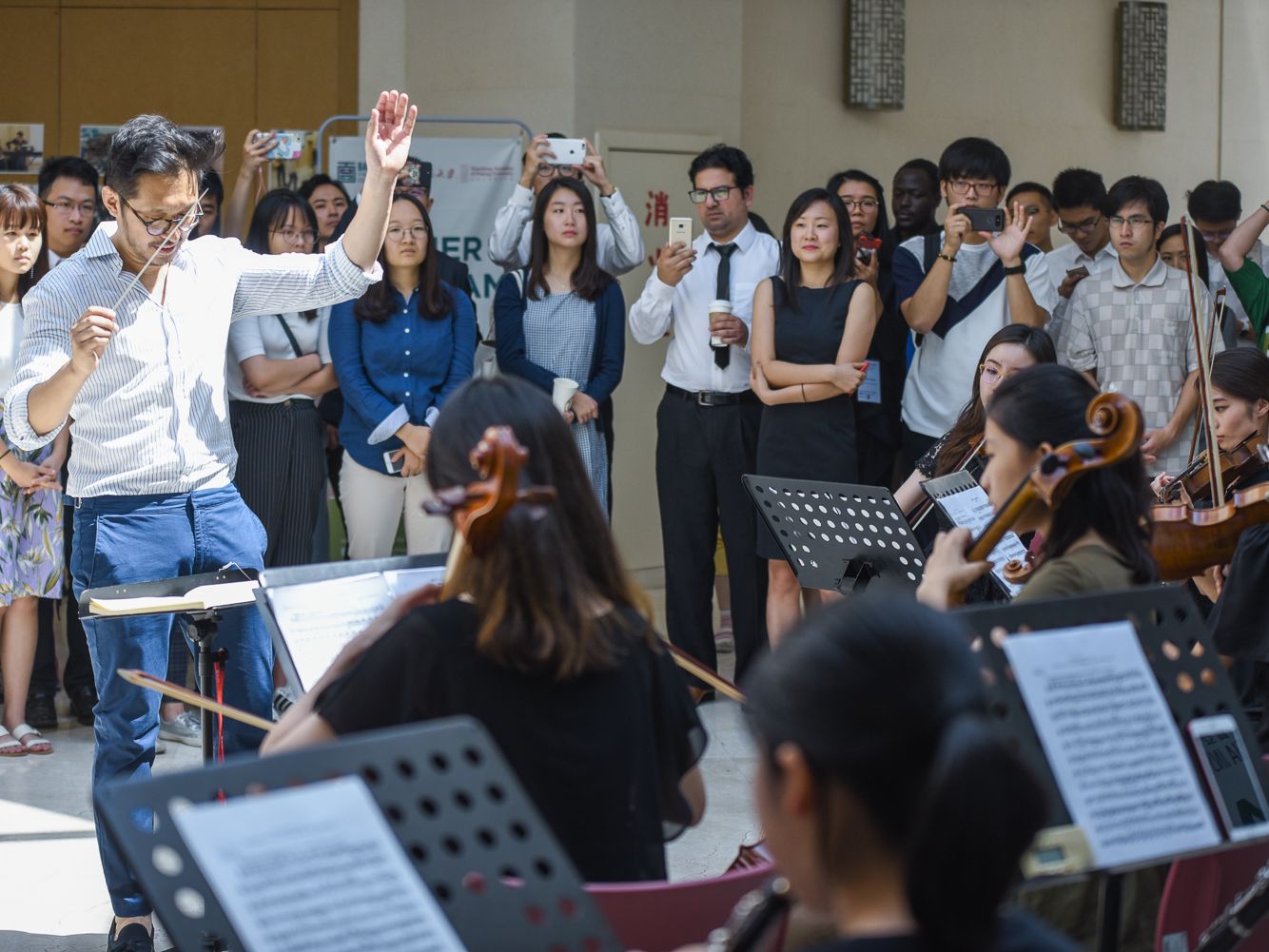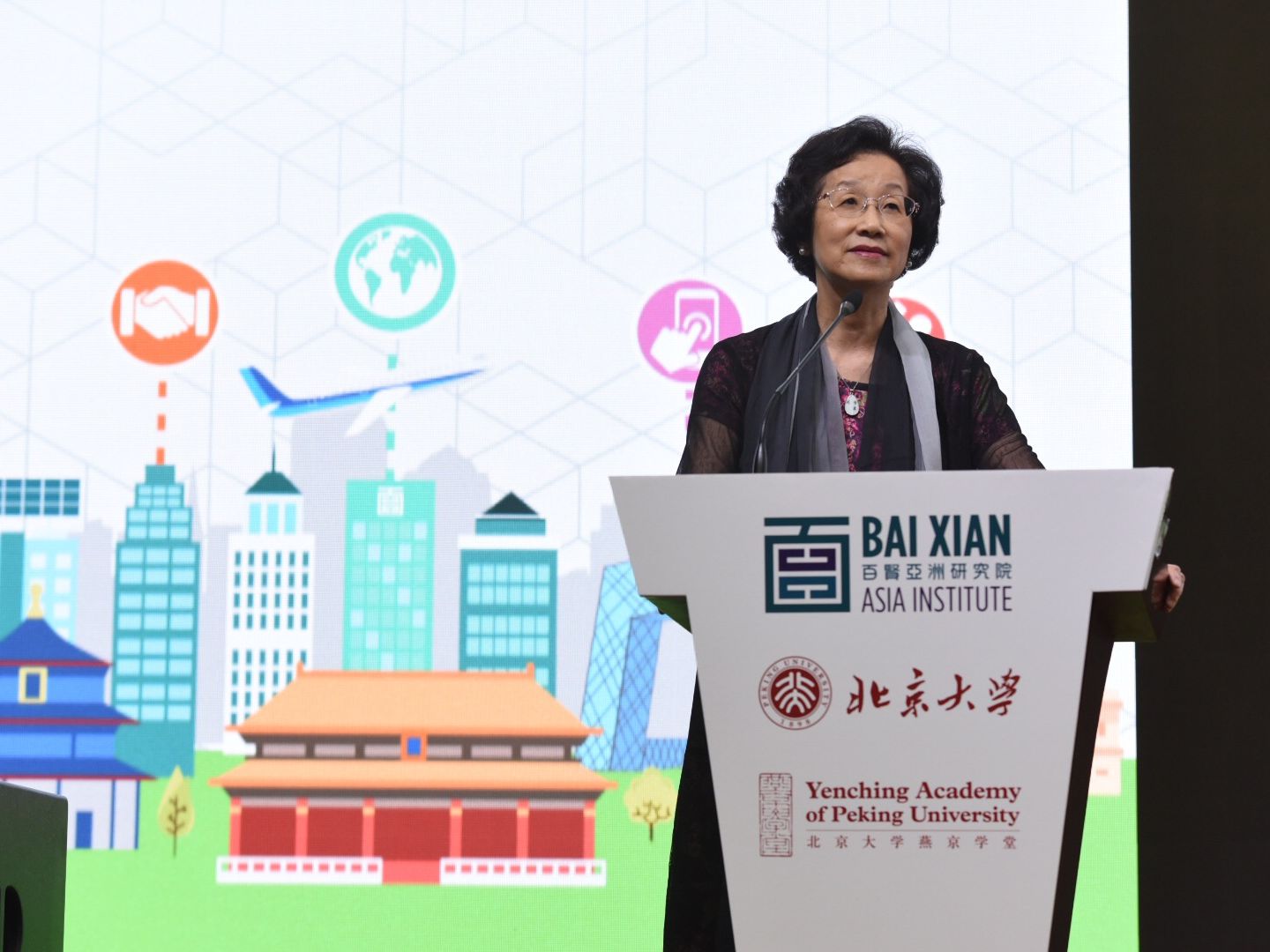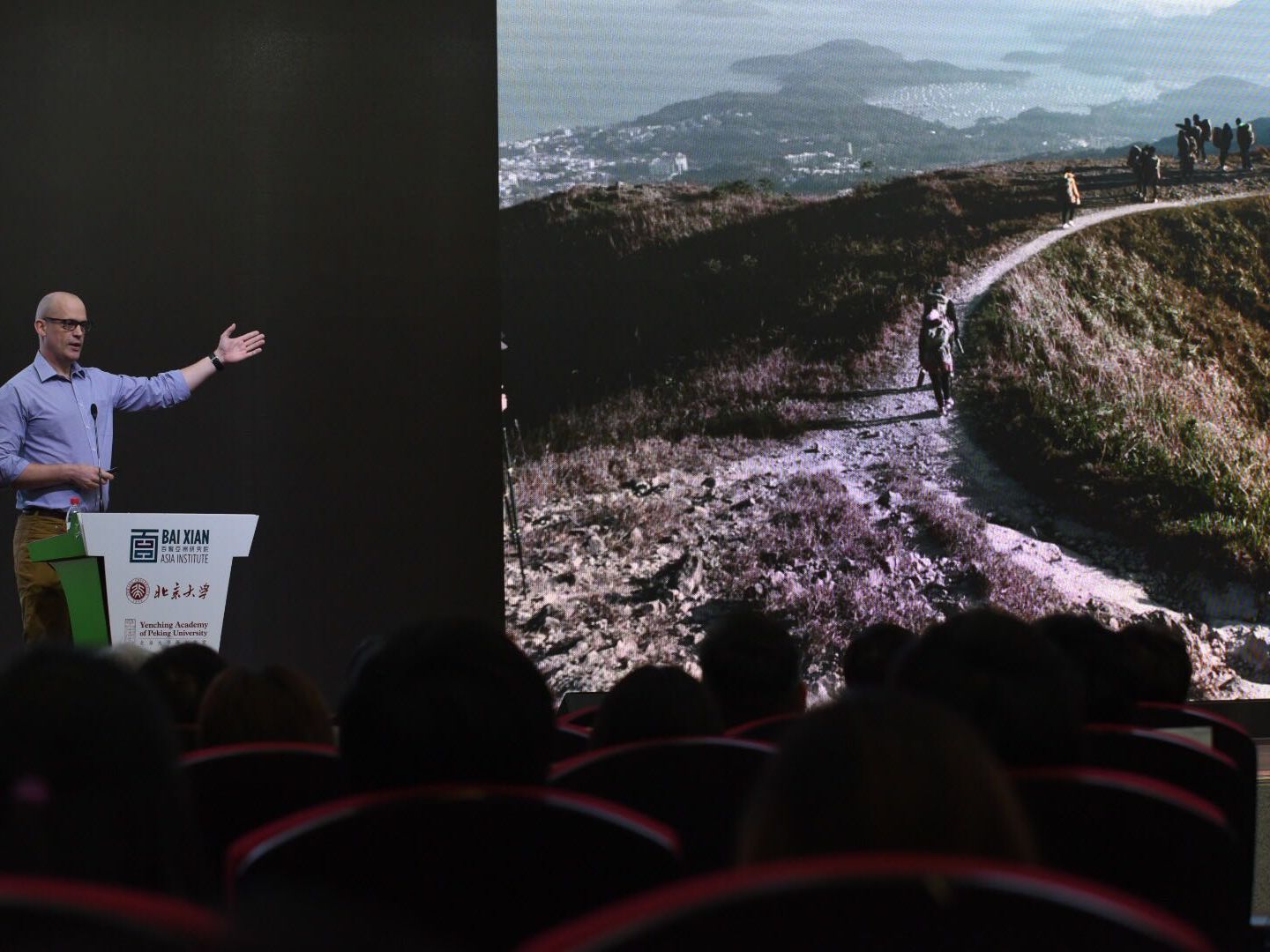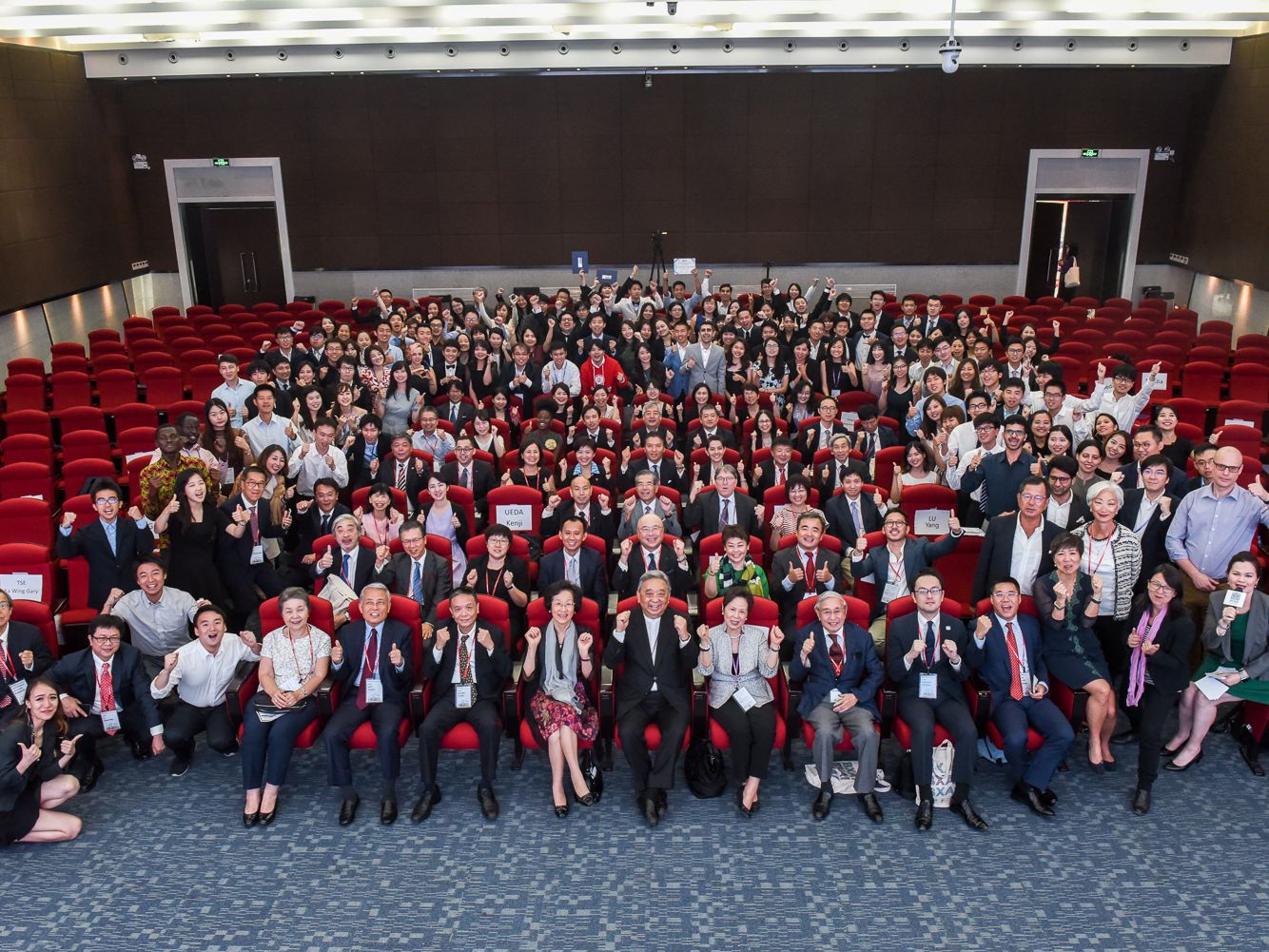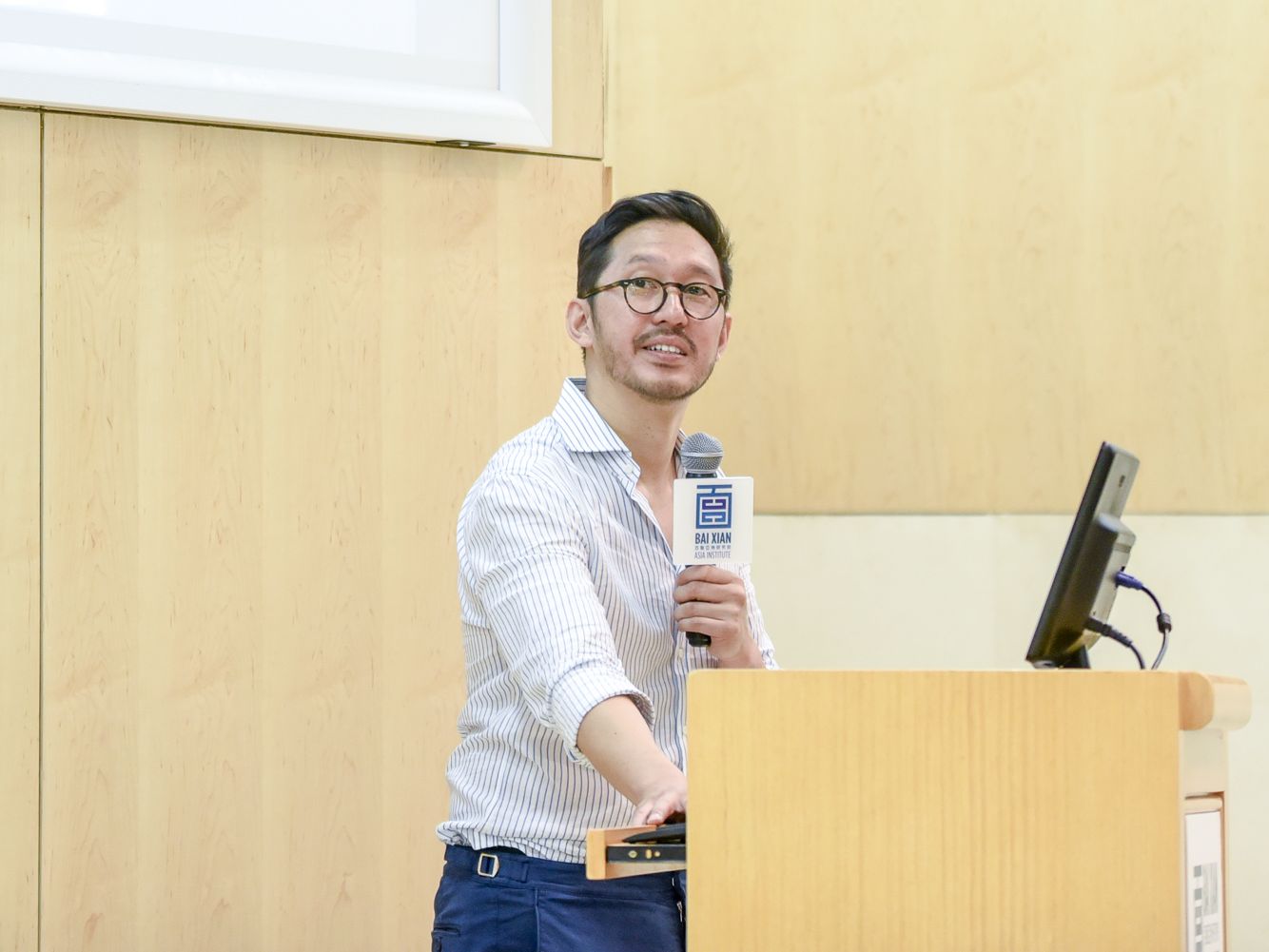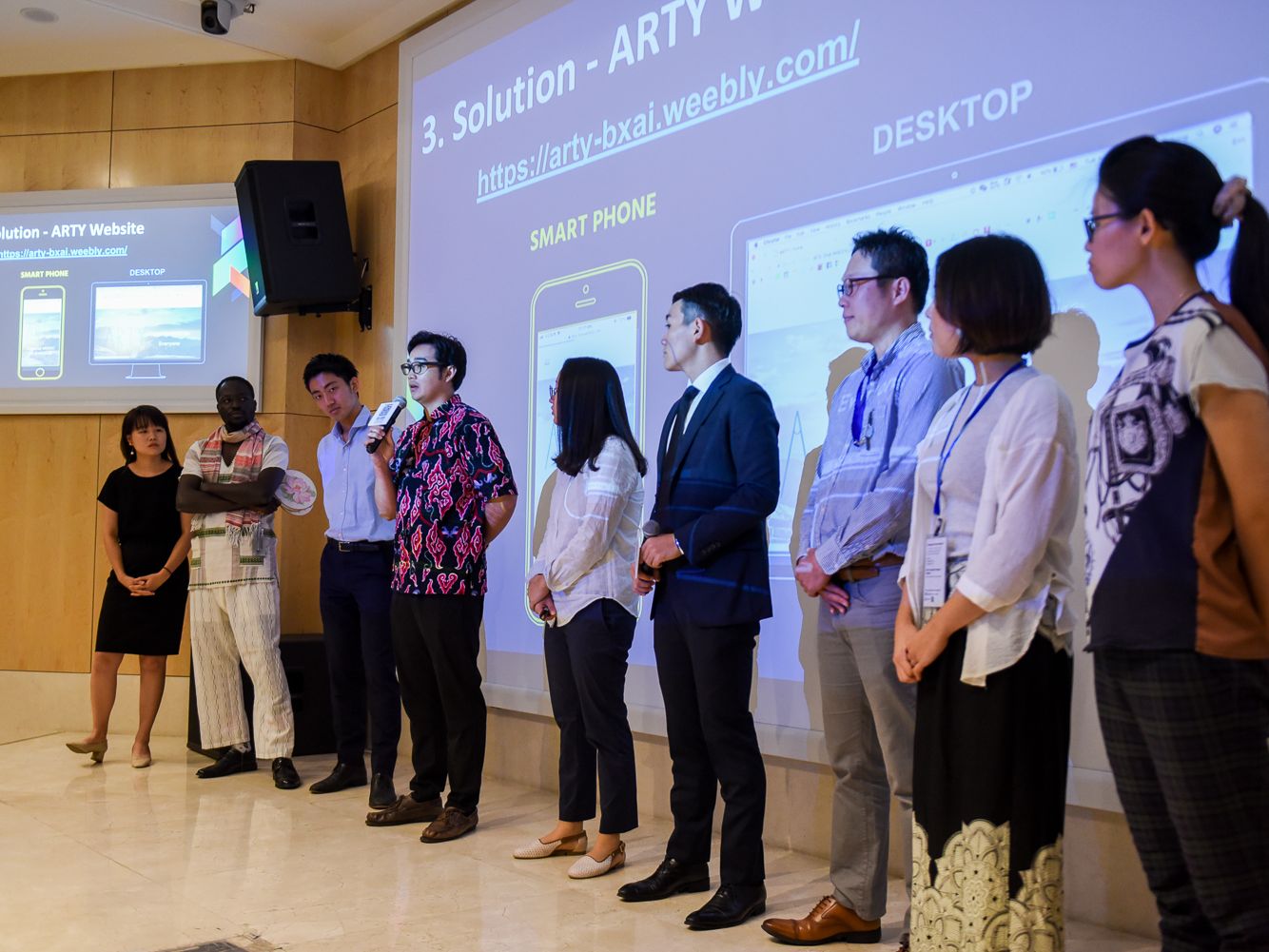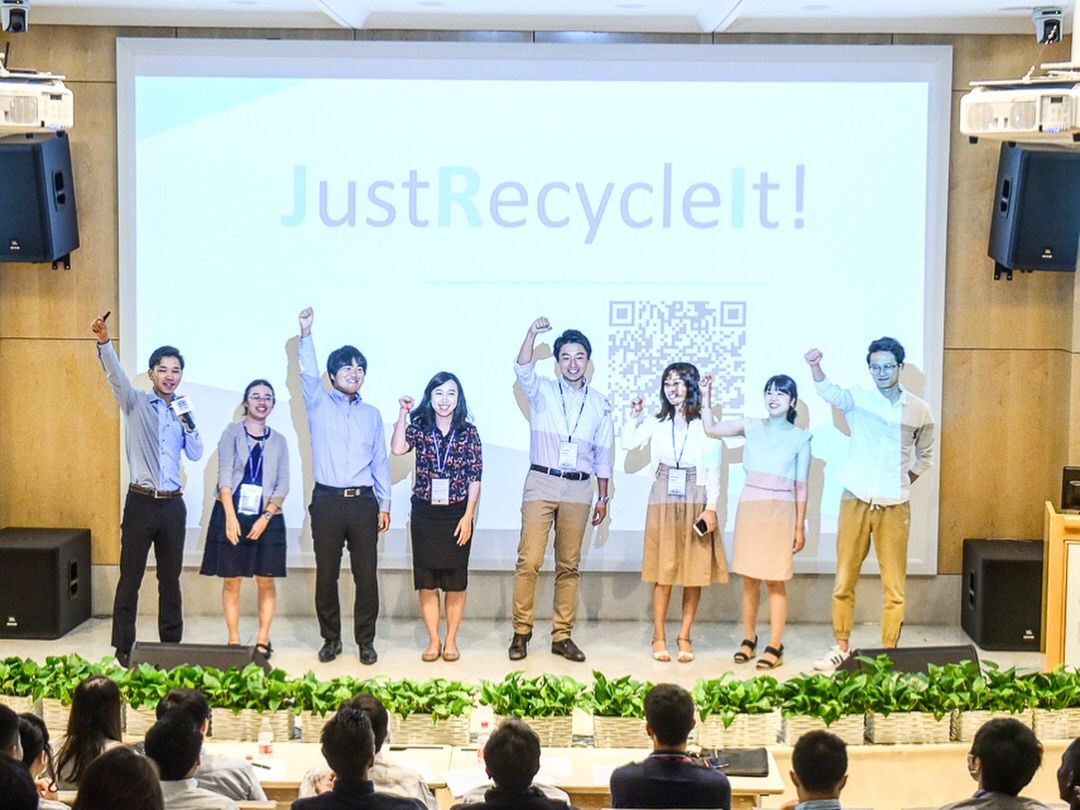The final week of the Summer Program, which transitioned from brainstorming ideas as a team to bidding friends farewell at Thursday night’s gala dinner, was a rollercoaster of emotions.
Feeling both inspired and perhaps slightly under pressure, we began preparing for our final presentations, the culmination of our Summer Program learning, at the end of week two.
“The core of design-thinking is the user’s problem, which you know through empathy,” addressed Brian Tam during the Deep Dive workshops. By following an exploratory approach, we learned to tackle social issues by locating a “user-bug,” identifying a focus challenge, and testing prototypes. Some students also devoted the weekend to working on their projects – Group A conducted a thorough survey of the recycling practices of Peking University by interviewing community members and local companies, while Group E biked 10 km around Beijing filming a video for their presentation.
Final presentations were not all that was keeping students busy, however, for nine scholars took time out of their own schedule to prepare speeches for Monday evening’s student presentations for the public speaking workshop, a wrap-up of last week’s session. Asian Future Leaders Scholarship Program (AFLSP) Scholar Ning Pan from Waseda University discussed how various “escapes” to different countries helped her refine her career goals. In a display of teamwork and friendship, AFLSP Scholar Kentaro Sakamato from Peking University acted as a translator for Yusuke Oe from Waseda University, who spoke in Japanese about the importance of pushing one’s limits.
Before delivering our final presentations, we had the opportunity to observe what a real-life, social startup pitch looked like at the Alumni Initiative Award pitch session on August 21, where two finalist teams presented their actions plans to compete for a USD 2500 cash prize and up to USD 15,000 in seed funding to take their ideas forward. The pitches were judged by Mr. Alex Fang, Co-founder and Managing Partner of eGarden Ventures; Ms. Mary Anne Choo, Managing Director of Goldman Sachs Asia; and Mr. William Wong from Bai Xian Asia Institute’s (BXAI) Executive Committee.
Speaking on behalf of team Innowat, Bai Xian Alumnus Xue Weiqi talked about his aspiration to transform waste into profit by recovering sulfated polysaccharides during wastewater treatment and applying the scarce resource to various industries. Representing Fairshare Cashmere, Bai Xian Alumna Nimrat Kapra and collaborators Adil Hamid and Danish Mir spoke about creating more equality in the cashmere industry. Fairshare Cashmere was ultimately crowned the winner of the 2018 Alumni Initiative Award and plans to increase the global market share of cashmere in the team’s hometown of Kashmir, where the fiber originated.
On Wednesday, our long-awaited final presentations finally took place, and all participants presented innovative solutions to traditional social issues. Targeting the important topic of waste reduction, Group A examined traditional and habitual ways that we create waste while Groups D (“Just Recycle It!”) and H (“EcoFunFun”) proposed using smartphone apps to encourage more sustainable behavior. Group I suggested replacing delivery companies’ plastic packaging with reusable boxes. Other groups pitched ideas that raise awareness about traditional values: Group C presented an app that allows users to teach dialects through funny, viral videos; Group E developed a skill-sharing platform for promoting traditional activities; Group F spoke about ameliorating problems faced by inner-city villagers lacking common resources; and Group G proposed an online platform for sharing traditional recipes from rural areas with urbanized regions. The judging panel, which included Professor Katsuichi Uchida, President of BXAI; Dr. Yansong Li, President of Shanghai International Studies University; and topic learning stream lead instructors Professor Lu Yang and Dr. Shengjun Zhu; awarded the Best Presentation Award to Group B, which created a prototype website that offers traditional arts and crafts lessons and products to people around the world.
In the final days of the Summer Program, we also had the opportunity to attend a fireside chat and hear about BXAI’s mission directly from a few of the Institute’s leading members, which included Mr. Ronald Chao, Honorary Chairman of BXAI; Professor Takanori Kitamura, Executive Committee Member of BXAI and Professor at The Chinese University of Hong Kong; and Ms. Jean Sung, Board and Executive Committee Member of BXAI and Head of The Philanthropy Centre, Asia at J.P. Morgan Private Bank.
“Everyone in this room is an elite,” said Mr. Chao. “But a real elite is someone who really knows the world, and tries to lift up the people around them.”
The other panelists emphasized the importance of knowing the world through intercultural relationships. Professor Kitamura stressed that a lack of contextual understanding across borders complicates peaceful integration in Asia, while Ms. Sung highlighted the significance of reflecting on different values to adapt to a changing, multicultural society.
During the Q&A session, Ms. Sung had a particularly uplifting message for the female leaders in the crowd: “Today, women have choices,” she said, underscoring how today’s society has evolved from the past. “You have decisions you can make for yourself.”
On Thursday morning, a keynote lecture delivered by Mr. Jason Lai, Principal Conductor of the Yong Siew Toh Conservatory Orchestra, encouraged us to think even further about the decisions we can make to become a positive leader. He demonstrated different styles of leadership by conducting an orchestra myriad ways, and invited students to try their hand at conducting to show the importance of leading with clarity and compassion.
He also surprised everyone by showing that the orchestra could play just as well without the conductor—a showcase of the performing musicians’ leadership, mutual trust, and sense of ownership cultivated by their leader. “When I stand back, everyone has to step up,” he said.
At the closing ceremony, Mr. Nick Cotton, Executive Director of Outward Bound Hong Kong, delivered a keynote speech on the value of risk in today’s increasingly sheltered society. He advised students to embrace risk-taking, and to assess and mitigate risks effectively in order to grow as active learners.
“You are the leaders of tomorrow,” he said. “We need people to break the mold…. Being a good leader is about giving people opportunities to test themselves.”
Ms. Ronna Chao, CEO of BXAI, also gave us empowering words of advice. Speaking to the value of “firsts,” which for many of us range from the first time climbing the Great Wall to the first time taking the Harrison Assessment, Ms. Chao encouraged everyone to continue challenging and enriching themselves.
“Each of you is a piece in the foundation of the bridge across cultures that Bai Xian is determined to build,” she said. “Go out there, extend your reach, be that connector and game-changer!”
BXAI’s strength at creating “connectors” became clear when alumni from across Asia joined us in Beijing for the gala dinner. Mio Sato, Naoya Matsumoto, and Eun Seo Kim discussed how the AFLSP has shaped their career pathways, and delivered a stunning Japanese, Chinese, and Korean rendition of “Yuki No Hana,” as well as “Try Everything” by Shakira. Aside from being entertained by alumni performances and an exhilarating lion dance showcase featuring intrepid students, the gala dinner was also a time for us to recognize the hard work of our dedicated student advisors, photography crew, and staff. We reminisced about fond memories from the past three weeks, which for one scholar included receiving a birthday card written in different languages—a testament to the diversity and friendship of the Summer Program participants.
Towards the end of the evening, Yenching Academy scholar Joel Odata described the Summer Program as a “once-in-a-lifetime” opportunity. Indeed, numerous moments from the program seem utterly unique and unrepeatable—from taking on the via ferrata to joining AFLSP Scholar Hijiri Miyazaki, Mr. Ronald Chao, and other guests in a conga line at the gala dinner.
Yet when Mr. Cotton asked us at the closing ceremony to think of the biggest risk we had ever taken, and to contemplate whether we would repeat it, one might consider the risks that were taken to found BXAI. To uphold BXAI’s mission is to ensure that opportunities such as the Summer Program are not just “once-in-a-lifetime,” but ways to spend a lifetime—forming new friendships, developing leadership, and building bridges across cultures.
